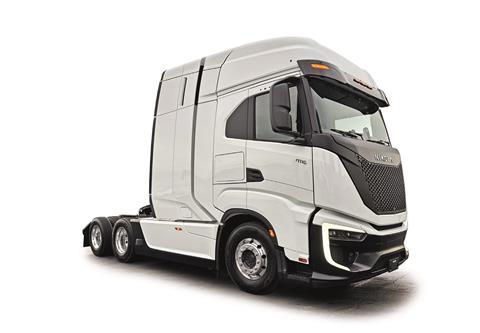US truck maker Nikola Corporation has filed for Chapter 11 bankruptcy protection.
The move comes as the company seeks to sell off its assets as the once-promising electric and hydrogen truck manufacturer attempts to wind-down the business.
Known for its HYLA brand of hydrogen fueling solutions, Nikola filed voluntary petitions in the US Bankruptcy Court for the District of Delaware, citing financial difficulties and a need for a structured sale process. Nikola has also filed a motion seeking court authorisation to conduct an auction under the US Bankruptcy Code.
It enters Chapter 11 proceedings with approximately $47 million in cash on hand, which is intended to support limited ongoing operations, facilitate the sale process, and navigate the bankruptcy proceedings.
Nikola plans to continue limited direct service and support for its existing trucks, including certain fueling operations until the end of March, pending court approval. After that, the company will require partnerships to maintain these services.
The proposed bidding procedures will allow interested parties, including both strategic and financial buyers, to submit binding offers for Nikola’s assets.
“With the dedication of our employees and support from our partners, Nikola has taken significant steps to move zero-emissions transportation forward, including bringing the first commercially available Class 8 hydrogen fuel cell electric trucks to market in North America and developing the HYLA hydrogen refueling highway, connecting Northern California to Southern California,” said Steve Girsky, President and chief executive of Nikola.
“Our customers have accumulated approximately 3.3 million fleet miles across both our FCEV and BEV truck platforms and our HYLA fueling network has dispensed well over 330 metric tons of hydrogen. Like other companies in the electric vehicle industry, we have faced various market and macroeconomic factors that have impacted our ability to operate. In recent months, we have taken numerous actions to raise capital, reduce our liabilities, clean up our balance sheet and preserve cash to sustain our operations. Unfortunately, our very best efforts have not been enough to overcome these significant challenges, and the Board has determined that Chapter 11 represents the best possible path forward under the circumstances for the Company and its stakeholders,” Girsky added.




















